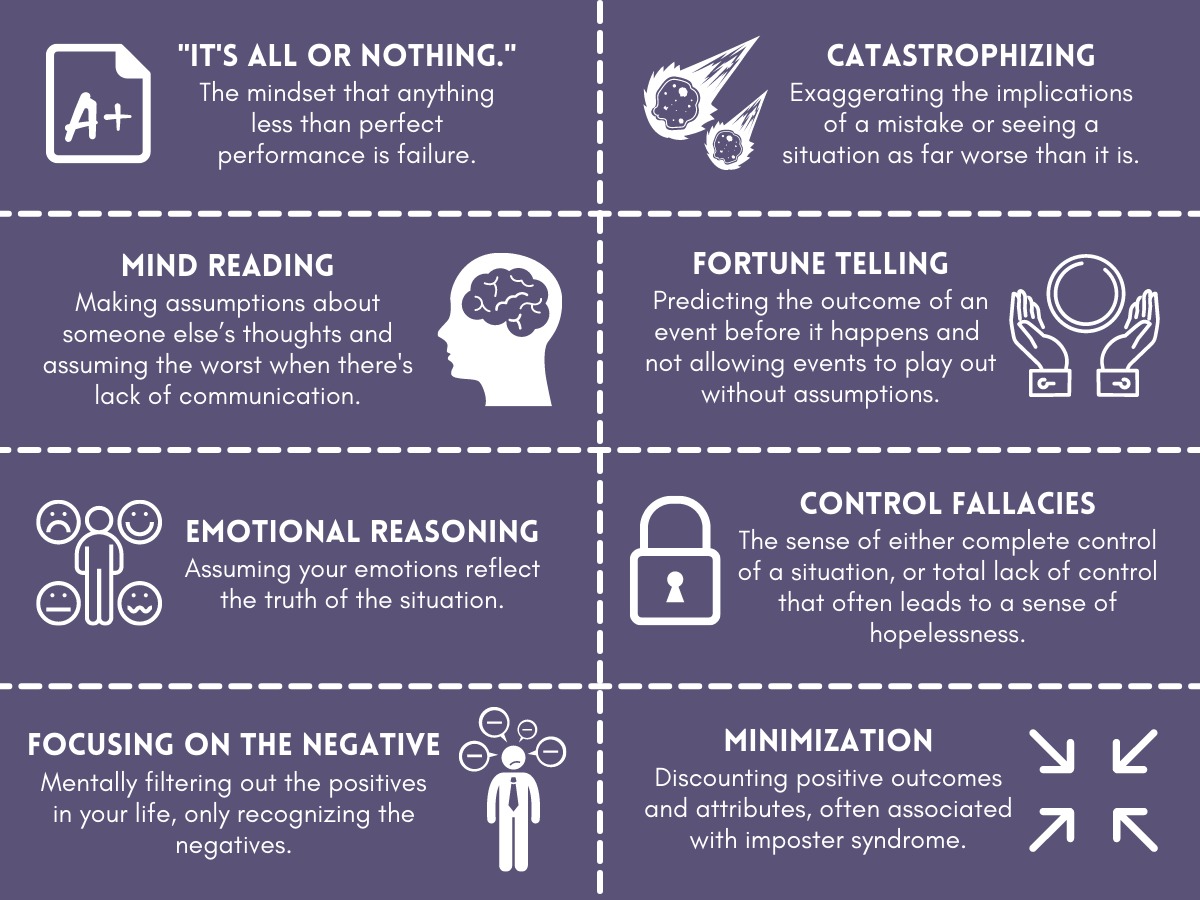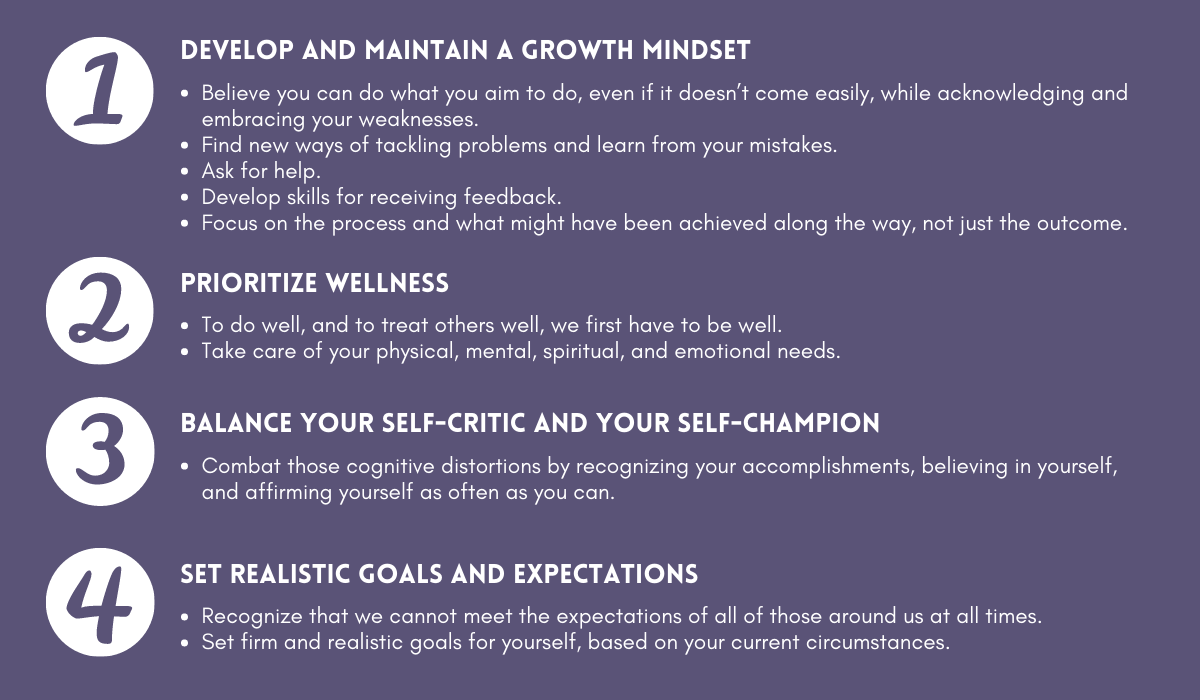Dr. Rebello defined resilience as the ability to adapt and grow through adversity, navigate through difficult challenges, and develop positive and productive attitudes and behaviors. She emphasized that resilience is not a talent or gift, but a learned skill that takes practice. The core elements to developing this skill are self-awareness, learning to let things go, maintaining realistic expectations, finding the emotions that are uplifting while acknowledging the negative emotions, and setting boundaries. Building resilience requires learning from past experiences, building strong positive relationships, and being mindful of negative self-talk.
As in many aspects of life, the most dominant forces working against anyone in academia are most often internal. The stories we tell ourselves and the cognitive distortions that consume us can be the strongest forces holding us back. Our brains are equipped with a negativity bias, and these automatic negative thoughts meant for self-preservation can impact our feelings and our behaviors. For example, imagine that you are in the process of applying to graduate school.
The negative thoughts: Everyone is working harder than me. They’ll get in and I won’t. My career will be over.
The feelings: anxiety, fear, frustration, overwhelmed
The behaviors: difficulty concentrating, procrastinating, or excessive time spent in overpreparation
Below are a few of the most common cognitive distortions to be aware of. Learning to recognize these thought patterns can be the first step in becoming more resilient.

We all have our own go-to cognitive distortions and the best way to combat these is to learn to recognize them and to work to soften them. It can be helpful to imagine how you might advise a friend dealing with these types of negative thoughts. While the negative thoughts are automatic, the positive ones often take intention and effort. Going back to the earlier example of applying to graduate school, here is how an intentional shift in thinking might impact your feelings and behaviors:
The thought: This is a challenging time, but I have made it this far because I work hard, take advantage of the
resources I have, and utilize my gifts. I can do this.
The feelings: motivated, determined, uncertain
The behaviors: work on what I can, ask for help if needed, practice self-care, and keep going
Below are four concrete ways to intentionally practice and grow in your resilience.

Dr. Rebello summed up her discussion on resilience by underscoring the essential steps to growing this skill:
- recognizing when you’re stuck in a fixed mindset or unhelpful thoughts,
- appreciating the source of those thoughts and learning to question them,
- actively working to soften them,
- being proactive in tackling the situation, and
- being thoughtful in how you approach setbacks.
If you were unable to attend this presentation, feel free to view it anytime here.
For more information and resources to support your academic career journey, check out https://www.training.nih.gov/wellness and visit the CCTS Upcoming Events page for more opportunities to learn and connect.